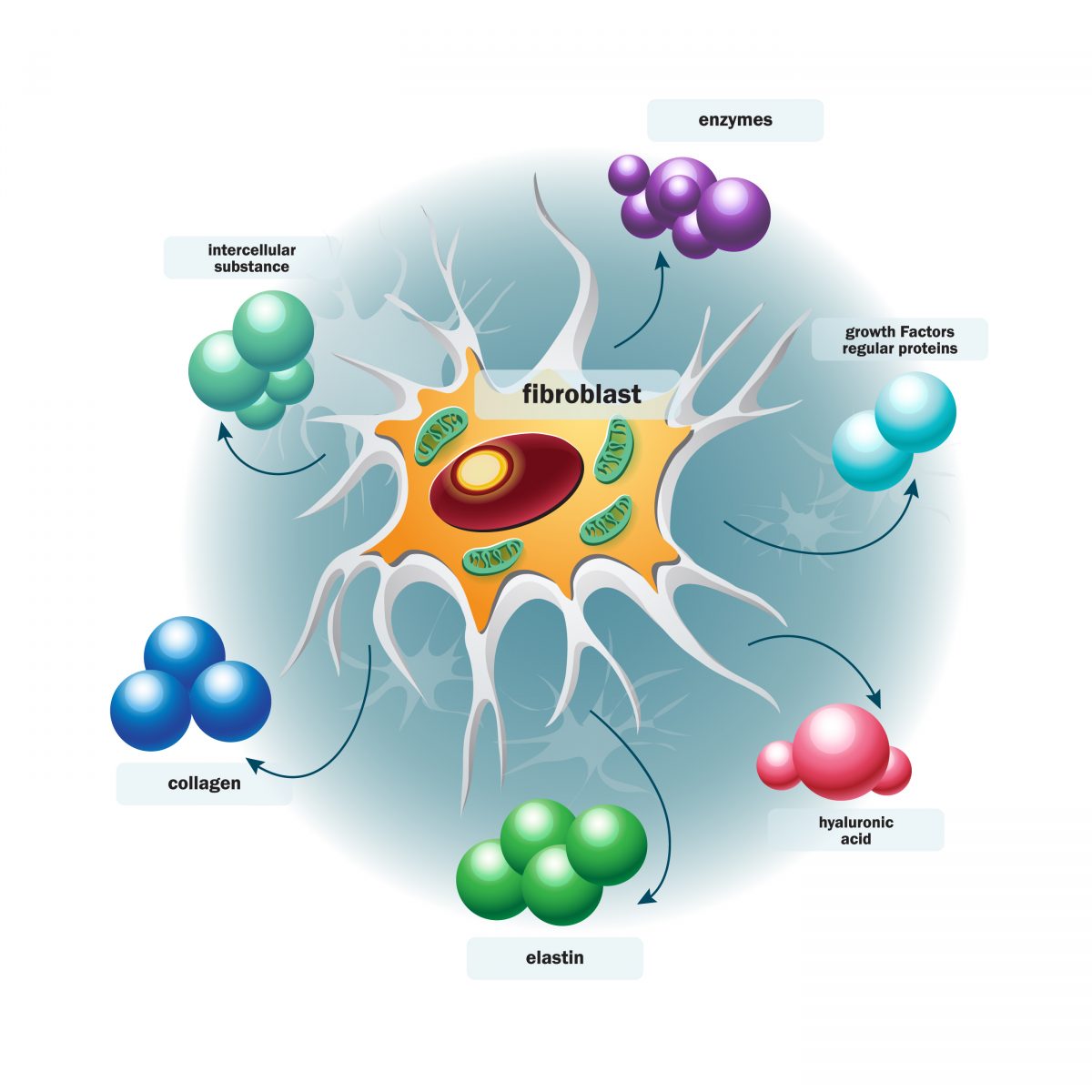New Compounds May Inhibit Driver of Collagen Deposits in PF, Study Shows

A new class of class of compounds called trihydroxyphenolics inhibits TGF-beta 1, the key driver in specific cells of lung fibrosis, researchers found, suggesting the compounds may be a potential therapeutic approach to reduce the effects of fibrosis.
The study, “Fibroblast-specific inhibition of TGF-β1 signaling attenuates lung and tumor fibrosis,” was published in The Journal of Clinical Investigation.
Cells called fibroblasts are responsible for the deposition of collagen, leading to tissue fibrosis. The molecular mechanisms underlying the fibrotic process are complex and involve several signaling molecules and pathways. TGF-beta 1 is the most important driver of collagen accumulation and diseases like pulmonary fibrosis.
Not surprisingly, TGF-beta 1 has become an attractive target for anti-fibrotic therapies.
While TGF-beta 1 can drive fibrosis, it can also suppress inflammation and epithelial cell proliferation. So the total inhibition of TGF-beta 1 signaling “can lead to the development of squamous skin tumors and auto reactive immunity,” researchers from the University of California San Francisco (UCSF) School of Medicine wrote.
Led by Harold Chapman, MD, professor of medicine at the Division of Pulmonary and Critical Care Medicine at UCSF, the team of scientists tried to find a more specific method of blocking the fibrosis-initiating TGF-beta 1 pathway.
Based on cellular changes caused by TGF-beta 1 activation, they screened for compounds that could inhibit TGF-beta 1-induced collagen accumulation, while leaving its other functions unaffected.
The researchers found that a class of small compounds – called trihydroxyphenolics – could have this effect in a specific manner, by affecting only fibroblasts, the collagen-producing cells.
When tested in mice models of lung fibrosis and lung cancer, they observed that low doses of these compounds were able to block TGF-beta 1 responses and collagen deposition.
And, the inhibitory action of trihydroxyphenolics depended on the presence of the active LOXL2 enzyme (a special class of protein), which is mainly produced by fibroblasts and cancer cells. This gave trihydroxyphenolics a specificity to these cells types, thereby preventing the toxic effects usually seen with global inhibitors.
“These studies reveal, for the first time to our knowledge, a pathway of inhibition of the TGF-β1–induced collagen program selective to the cells that are most accountable for pathological collagen deposition,” the researchers wrote.
Overall, researchers suggest that the use of these selective compounds can result in potent anti-fibrotic activity. As a result, they hold therapeutic potential for chronic diseases dominated by progressive collagen accumulation, such as pulmonary fibrosis.







